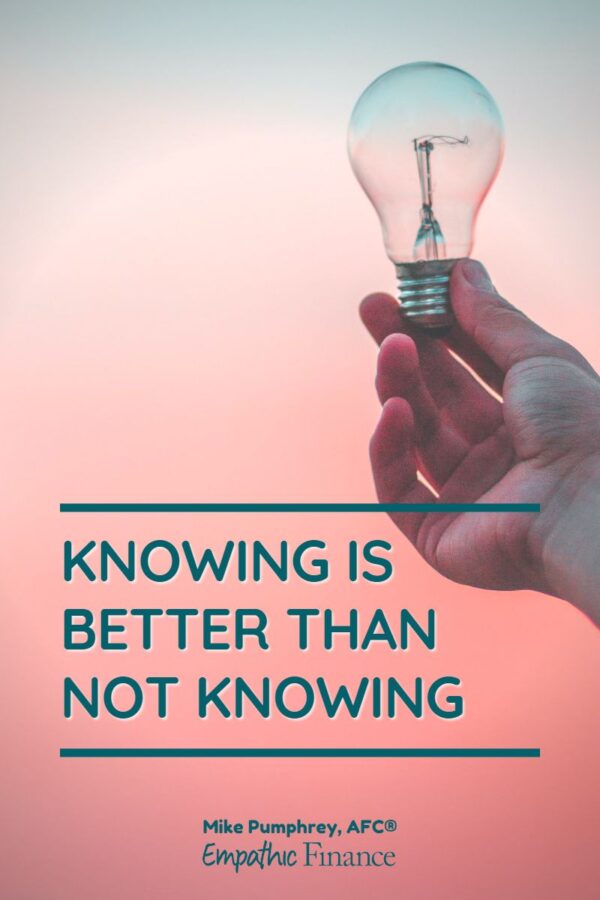Avoidance is common is personal financial matters, but even though it’s momentarily painful, it’s always better to know where you stand.
One of the most common stances that people have toward money is avoidance. It’s so common that I have termed it one of the four Money Attachment Styles.
“I never look at my balance.”
“I don’t want to think about money.”
“I just hope that I have enough money at the end of the month.”
Does this sound like you? Maybe not; I like to say that people who have an Avoidant Money Attachment Style “have long ago left the room”.
And in truth, I’ve found that those with an Avoidant style are often the hardest to coach. They tend to be the more resistant to doing the work, and are more likely to actually ghost entirely (even if they have sessions paid for already).
And that’s a shame, because working on our avoidance is really one of those core money “meta” skills that don’t get talked about enough. And while a full look into the psychological traits that underpin an avoidant tendency is beyond the scope of this post, I can at least go into the practical reasons why working through your own money avoidance can help your anxiety lessen quickly, if not immediately.
Table of Contents
Reasons to be avoidant
Why are people avoidant around money?
Avoidance generally comes down to fear, though the specifics of the fear can vary.
There can be:
- Fear of not having enough money
- Fear of feeling like failure
- Fear of rejection or disdain from others
- Fear of loss (of status, of things, of ability, etc.)
As you can see, this can be a very wide-ranging situation, ranging from the bare basics of “I won’t be able to afford this” to the more intense “my partner won’t love me”. And everything in between.
It important to realize that none of this has anything to do with the standard boilerplate “I hate money”. That is a symptom of a deeper cause. Of course you hate the thing that makes you afraid.
Reasons to not be avoidant
People who are avoidant are not doomed to be avoidant.
Sometimes it takes a “sick and tired of being sick and tired” moment, or some other catalyst.
And for those people, I offer some of these reasons to not be avoidant.
- A known problem can be fixed. There is no financial problem that can’t eventually be fixed. It may take time, and it may certainly be difficult, but nothing is insurmountable. But if you don’t know that you have a certain problem, you can’t make any movements towards a better state.
- Problems ignored become worse. Financial challenges tend to beget financial challenges, especially if left unchecked. It is the height of ironies that a checking account that’s been overdrafted or a credit card whose payment was not made can incur hefty fees. But it’s true that if you’re behind on payments or if you’re paying too much for something, or any other detail that’s being missed, it will likely compound over time.
- Your imagination is just too good. There is no problem that’s worse than the imagined problems in our head. It’s actually quite impressive the amount of disaster scenarios that people can think up when they are worrying about money. I sort of wish that everyone with money fears would instead channel those creative pursuits into a writing career, so impressive are the inventions. In short, it’s never as bad as you think it is.
There are no monsters
I always like to use the analogy of “monsters under the bed” (or “in the closet”, whichever was your particular childhood fear).
You may be scared to look under the bed, fearing what you’ll find.
But in truth, the worst you’re going to find is a mess.
And a mess can be cleaned up. But you have to be willing to look first.



